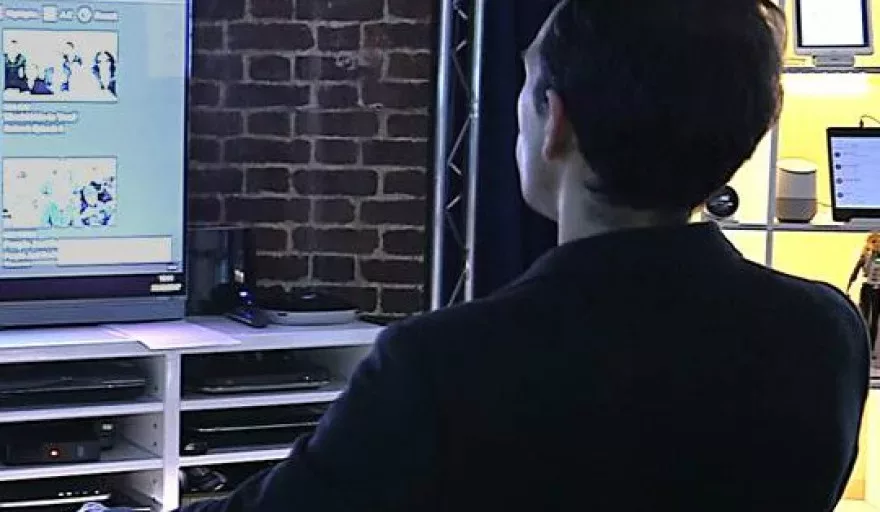We take a deep dive into the changing opportunities of tech with Cyrus Saihan, the Head of Digital Partnerships at the BBC.
Long gone is the heyday of vinyl, something that millennials and Gen Z now refer to as ‘vintage’.
In truth, the exponential world of technology that has fundamentally changed our lives is no better reflected than in the rapid progression of the music industry.
In the way of statistics, 2017 best highlights this.
Total global revenues from music streaming services such as Spotify, Apple Music and Amazon Music rose 41 percent to $6.6 billion for the year, surpassing CD revenues for the first time which comparatively accumulated $5.2 billion.
Meanwhile, aside from such services, it is estimated that YouTube accounted for 46 percent of all music streamed worldwide (not including China) last year, according to the International Federation of the Phonographic Industry.
Compare this to 2005 when YouTube didn’t even exist, CDs accounted for $17.9 billion in global revenue and digital music contributed for a much lower $1.1 billion, it is easy to see how quickly the industry has moved in little more than a decade.
For many, it was hard to envisage the transformative potential of technology in relation to the music industry at the turn of the millennium. However, Cyrus Saihan, currently the British Broadcasting Corporation’s Head of Digital Partnerships, did anticipate the growth in opportunity.
“I originally started out as a lawyer in the city, but seeing how the music landscape was changing with the launch of iTunes and MP3 players, I joined Ministry of Sound. I had a great time working there, experimenting with new types of digital content like ringtones and mobile videos,” he reveals.
“A few years later, YouTube took off, heralding the start of new ways to distribute videos online. Seeing that opportunity, I left Ministry of Sound to found a digital video production company and then came to the BBC a few years later, not long after the launch of BBC iPlayer.”
From then till now
Having worked at the BBC for almost a decade, standing in his current role for the past three years, Saihan has witnessed equally momentous changes across all segments of the media industry.
“I joined just before the iPad launched when only a small percentage of the population owned smartphones. To be part of such a well renowned, forward-thinking media organisation as massive changes have taken place has been fantastic,” he says.
“Whether it has been the emergence of new devices, connected TVs or new formats such as virtual reality and augmented reality, progress in the media industry has brought a lot of opportunities with it.”
Renowned as an innovative institution since its inception in 1922, the BBC retains the same core principles today as it did almost 100 years ago – adapting early in the aim of satisfying the growing demands and expectations of the consumer.
However, since the turn of the millennium, ground breaking innovations at the organisation have become increasingly frequent, from the launch of bbc.co.uk in 1997 when the internet was still finding its feet, to the creation of the iPlayer in 2007.
This is only expected to continue, and moving into 2018, the organisation has increasingly immersed itself in experimenting with new and emerging technologies.
Inventive experimentation
Partnering with Spritz, the BBC has sought to explore the potential of revolutionising the way that people intake information, raising the bar with the development of ‘speed reading’ technology.
Saihan explains: “Our speed reading experiment was an internal prototype to see how new technologies might be able to help people read BBC content faster than ever before, and better deal with the increasing amount of digital information that all of us are now presented with on a daily basis.
“By showing users one word at a time on screen, the idea is that a user’s eyes can stay in a fixed position and not have to be constantly moving from left to right as they read. The result, in theory, is that the rate at which a user can read can be dramatically increased.”
Partnerships such as these are crucial, not only to the success of the BBC, but in a wider context of continuing to transform and develop new technologies in the modern age.
The Corporation ensures that it maintains strong relationships across the spectrum, working with global heavyweights such as Amazon, Google, Facebook and Apple, whilst also leveraging the unique ideas of startups and digital agencies like Spritz.
“The BBC invests significantly in working with all kinds of organisations,” Saihan explains. “The external creative economy is an important source of new ideas and gives us access to talent that helps us deliver our digital products and services, ranging from our mobile apps to online games for popular brands such as Doctor Who and Danger Mouse.
“By combining our expertise and resources with partners from outside the organisation, we are able to support the wider creative industry and deliver greater value to everyone.”
The speed reading experiment is just one example of the BBC’s extensive technological endeavours, with the firm also exploring the use of voice interfaces.
Having led the proof of concept project that allowed consumers to log into the BBC’s services using a unique voiceprint off the back of this, Saihan is hopeful that expansive advancements in the media industry will continue moving forward.
He concludes: “As the technology develops further and as audiences get more comfortable speaking with their digital devices, it will be interesting to see what other new types of media experience could be created.
“When you are able to have a proper conversation with your phone, TV or radio, it could open up a range of opportunities for organisations such as the BBC.”
































